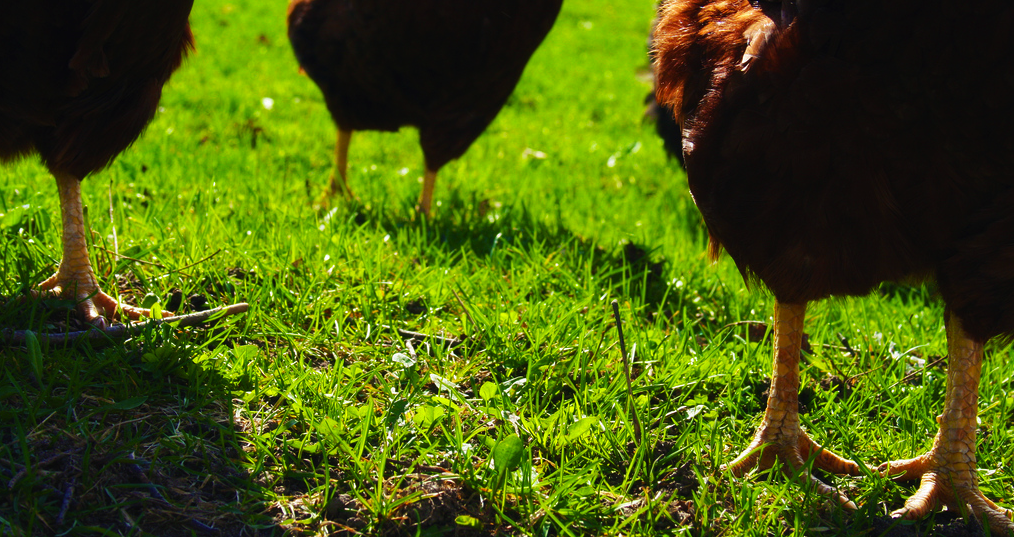It’s been a few years since a widespread avian flu outbreak hit U.S. poultry farmers hard, prompting national egg shortages and higher prices for products. Farmers are starting to get worried again, after a highly contagious strain of the flu has been found in a commercial chicken flock in Tennessee. [More]
bird flu
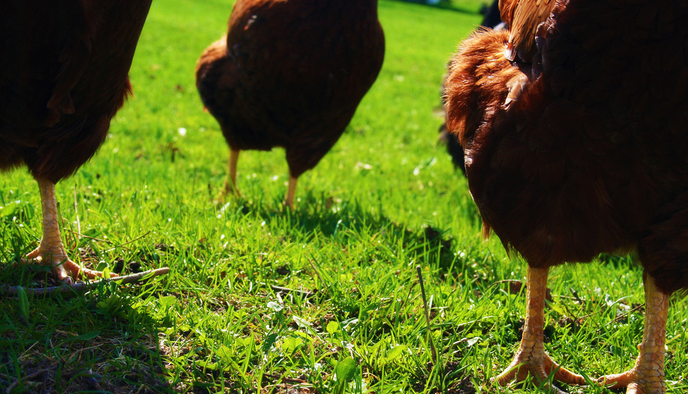
U.S. Poultry Industry Facing New Bird Flu Strain Currently Wreaking Havoc Overseas
A very familiar threat could be winging its way toward U.S. poultry farms, and it’s got the industry more than a little bit worried: there’s a new strain of avian flu speeding across Europe and Asia, forcing farmers to destroy tens of millions of infected birds. [More]

Can You Get Bird Flu From Your Cat?
At first glance, the above headline might seem like a no-brainer — “Cats aren’t birds, silly!” you might be thinking. But what if your favorite feline caught bird flu — would that mean you’re at risk for catching the bug, too? [More]

Egg Prices Fall After Avian Flu Recovery, Demand Still Stays Low
Last year, an epidemic of bird flu killed millions of chickens and turkeys, affecting the supply of bird-based meats and of chicken eggs. Experts thought that the shortage and high egg prices might continue, but they were wrong: farmers were able to breed and raise new generations of female chicks, ready to take the place of their fallen colleagues. [More]
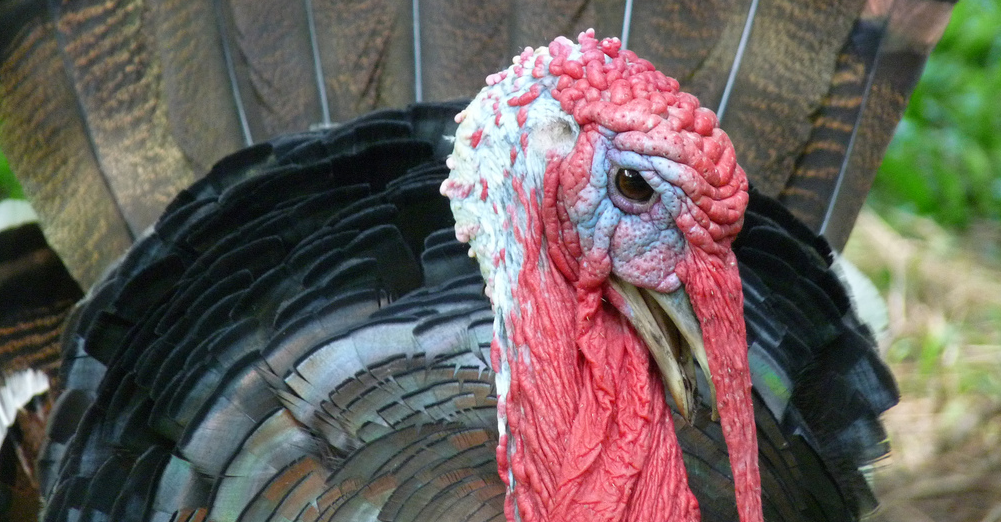
USDA Reports First New Case Of Bird Flu Since June At Commercial Turkey Farm In Indiana
As U.S. poultry farmers continue to get their flocks back to normal levels and consumers are finally seeing prices dropping after the widespread avian flu outbreak that hit the industry last year, officials with the Department of Agriculture say they’ve found the first case of bird flu since last June. [More]
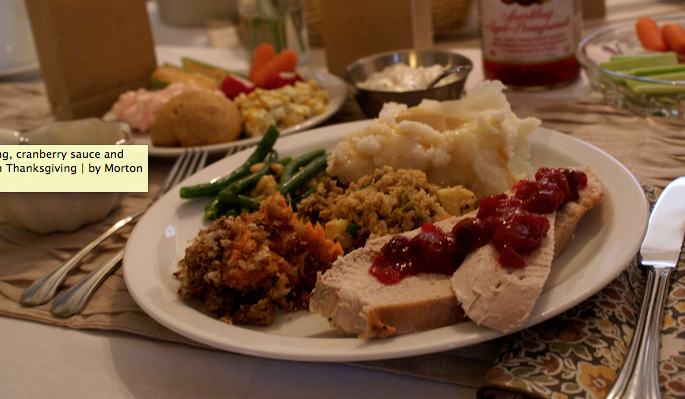
Turkey, Pumpkin Supply Issues Won’t Impact Thanksgiving Meal Prices
While the aftershocks of this summer’s avian flu outbreak and the recent loss of pumpkin crops to high rainfall have led to higher prices for the products, analysts say those costs shouldn’t affect this year’s Thanksgiving dinner. [More]

Egg Prices Went Up Yet Again Last Month — But Relief Could Be In Sight
The bad news: the after shocks of the avian flu outbreak that hit U.S. farms this year continue to linger, with egg prices increasing yet again in September. The good news: prices should start to fall, experts say, just in time for prime holiday baking season. [More]

It Ain’t Over Yet: Bird Flu Aftershocks Will Keep Egg, Whole Turkey Prices High
Though the bird flu crisis might be over now, the toll it’s taken on egg and poultry producers in the U.S. will continue for quite some time. Industry experts say egg prices will climb higher than previously predicted, and stay high through 2016. Meanwhile, frozen wholesale turkeys will also cost more this Thanksgiving than last year. [More]

Grocers: Egg Supply Is Fine Amid Bird Flu Outbreak Because Higher Prices Keep Demand Down
Although you might be seeing higher prices for a carton of eggs at the supermarket or limits on how many you can buy at once, it’s not likely you’ll be facing bare shelves at stores anytime soon, say grocers. Prices have tripled in some areas, tamping down demand as some customers aren’t willing to shell out the extra dough for a dozen eggs. [More]
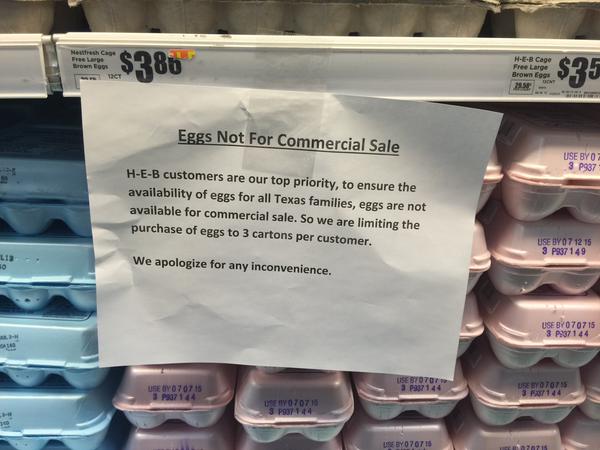
H-E-B Posting Signs In Stores Asking Customers Not To Buy More Than 3 Cartons Of Eggs Amid Shortage
Following on the heels of Whataburger’s recent announcement that it’s shortening its weekday breakfast hours due to the recent egg shortage caused by an especially bad outbreak of avian flu, Texas supermarket chain H-E-B is posting signs in its stores asking customers to please not buy up all the eggs at once. [More]

Whataburger Shortening Weekday Breakfast Hours Amid National Egg Shortage
We were warned, and so it has come to pass: The recent outbreak of avian flu that’s been decimating poultry populations in the Midwest is putting the hurt on American consumers. Whataburger announced that starting today, it’ll be shortening its breakfast hours in the face of a national egg shortage. [More]
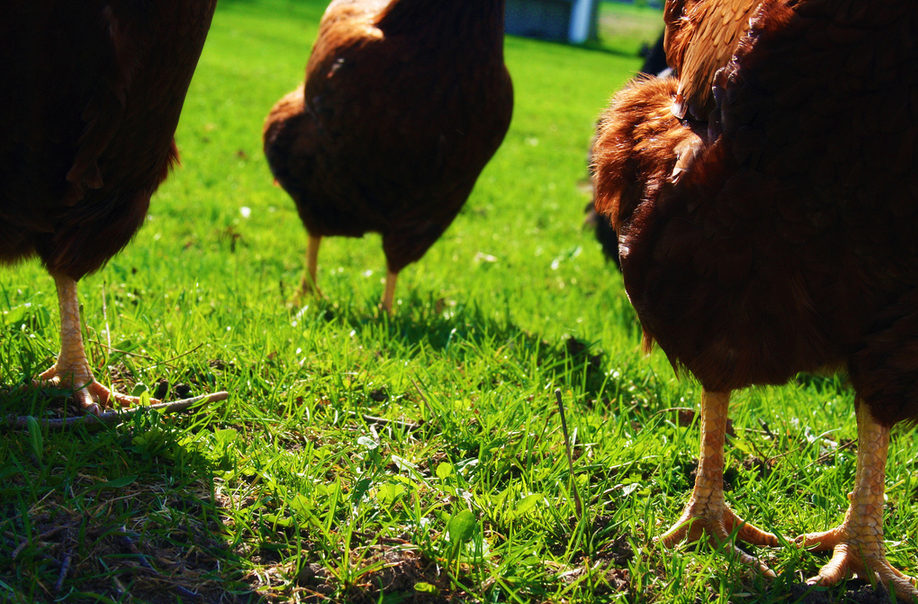
Prices For Eggs, Turkey Meat Starting To Rise As Bird Flu Outbreak Continues
We’ve heard warnings that Thanksgiving turkey supplies could suffer a hit this season amid a severe outbreak of avian flu in the Midwest that began in April, and now it appears consumers will begin to see effects in their wallets. The prices for eggs and turkey meat are going up as more chickens and turkeys fall to the disease. [More]
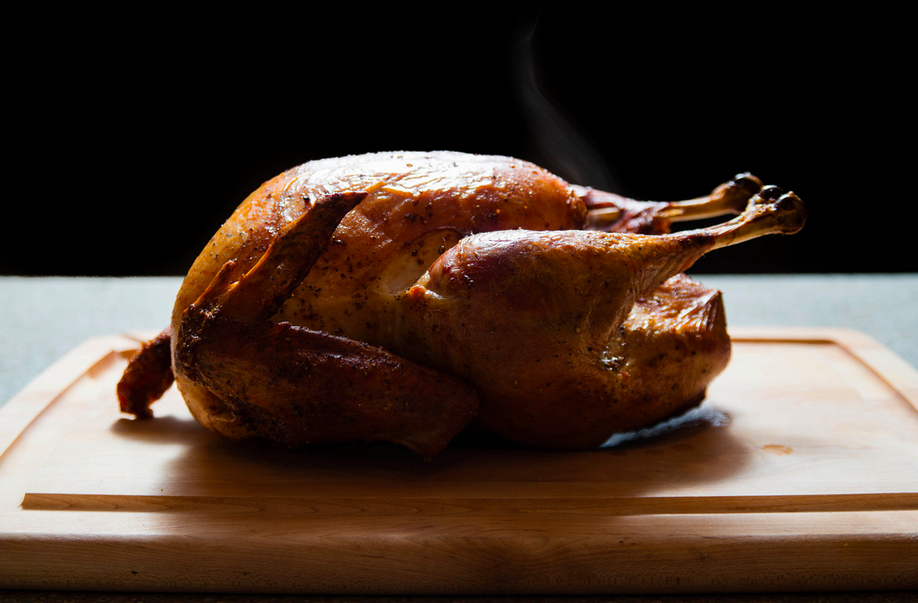
Poultry Pros: Avian Flu Outbreak Could Impact This Year’s Thanksgiving Feasts
It’s still more than six months away, but amid an avian flu outbreak in the U.S. that’s doing some serious damage to poultry farms, some people are already having to think long and hard about Thanksgiving. Supplies of whole turkeys might not be able to keep up as well as usual with the holiday demand. [More]
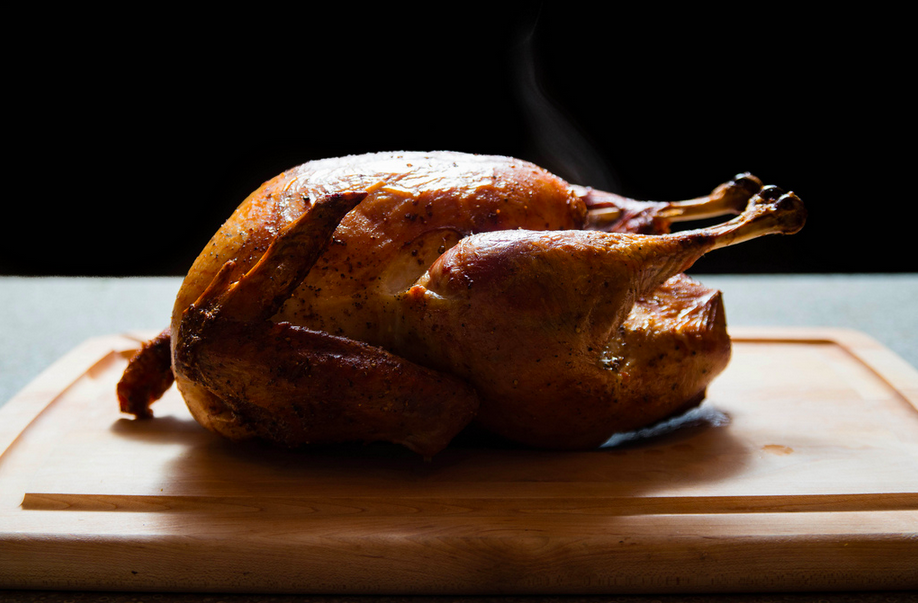
Hormel Says Turkey Sales Will Suffer This Year Because Of Bird Flu Outbreak
In the midst of a major avian flu outbreak, Hormel says the fallout from the virus will mean it sells fewer turkeys this year, after losing 1.7 million birds on 28 farms in Minnesota. [More]
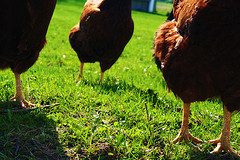
Let’s Not Freak Out, But A New Bird Flu Has Jumped To Humans For The First Time
What we didn’t want to happen has happened — a strain of bird flu that scientists were pretty sure couldn’t infect people has gone and shown up in a human for the first time. This doesn’t necessarily mean a rush on face masks and antiseptic wipes, however, just that scientists have some work to do creating vaccines to protect everyone. [More]
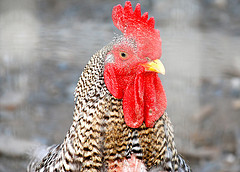
Scientists Genetically Modify Chickens To Not Pass On Avian Flu
As bird flu threatens to morph into a virus that can be passed from human to human, British scientists have taken a step forward in preventing the spread of the deadly epidemic by producing genetically modified chickens which are unable to transmit the flu to other creatures. [More]

Tamiflu And Relenza Treat Flu, But Might Make You Crazy
This week, an FDA advisory panel will review a recommendation to put a warning on flu drugs Tamiflu and Relenza that says there have been “psychiatric events observed in some patients.” The companies who make the drugs have both responded that they’ve found no causal link between their drugs and “psychiatric events.”


